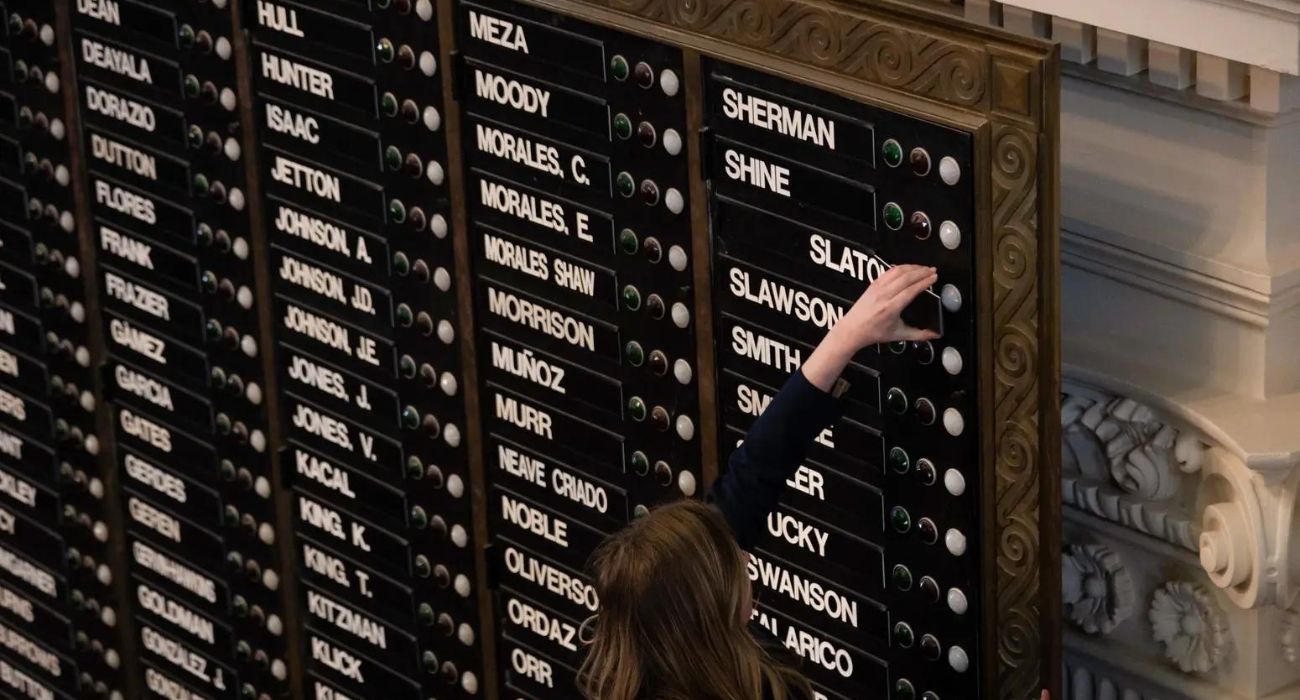The American Civil Liberties Union (ACLU) of Texas filed a lawsuit against the Magnolia Independent School District on Oct. 21, alleging that the district’s grooming policy discriminates against male and nonbinary students. They filed the suit in the United States District Court, Southern District of Texas, on behalf of seven male students punished this school year for possessing long hair. The ACLU says that some 500 Texas school districts have similar grooming policies to punish students unequally.
The policy in question requires male students to keep their hair cut “no longer than the collar of a shirt, below the ears, and out of the eyes.” No such policy exists for female students, nor are exemptions provided for transgender and nonbinary students, or cultural and religious reasons. Further, the policy is applied unevenly, with some students being allowed to wear long hair without reprimand. In contrast, others are forced to serve indefinite in-school suspensions that can severely impact learning outcomes.
“Since the start of this school year, Magnolia Independent School District (Magnolia ISD) has imposed immense and irreparable harm on Plaintiffs, who are seven students between the ages of seven and seventeen, solely because of these students’ gender,” the lawsuit reads.
“Plaintiffs have been subject to severe, ongoing, and escalating harms due to the district-wide policy that prohibits boys, but not girls, from wearing long hair: they have been denied classroom instruction, barred from extracurricular activities, and forced to be suspended and separated from their peers for well over a month simply because these students do not conform to Magnolia ISD’s stereotypical notions of gender.”
The policy has been used to punish Black students for wearing long dreadlock hairstyles and against students who do not conform to gender stereotypes in the manner of dress they choose.
While this suit focuses on discrimination about the length of hair, district policies in other regards are also gender-based and facially discriminatory, according to the ACLU. For example, district policies bar male students from wearing ponytails, buns, and earrings but do not extend the same restrictions to female students.
“At a time when students have already been through so much due to the COVID-19 pandemic, it is outrageous that Magnolia ISD administrators are pushing students out of school because of their gender and hair,” said Brian Klosterboer, ACLU of Texas staff attorney who is leading the lawsuit.
“We have warned the district repeatedly that its gender-based hair policy violates the Constitution, but the district continues to derail students’ lives and deny their right to a public education free from discrimination. Magnolia ISD is failing to live up to its motto ‘to be the best district in the state of Texas,’ and the district needs to stop hurting its students.”
The suit identifies the punishments of various students, who as minors are referred to by initials rather than names. Among the punishments, students have been forced to drop out of advanced classes, arts and music programs, and athletic competitions due to in-school suspension punishments that prevent them from attending these educational opportunities.
The policy is not equally enforced in the district. Several of the student plaintiffs have worn long hair for years while attending schools in the district without issue. Further, the district regularly posts images online of male football players wearing long hair in violation of the policy but punishes male tennis and band members for the same hairstyles.
The lawsuit seeks a permanent injunction against the ISD and requests that students return to regular classes without fear of further punishment. Attorneys for the ACLU believe that the district policy violates Title IX of the Education Amendments Act of 1972 and the Equal Protection Clause of the Fourteenth Amendment to the Constitution.






